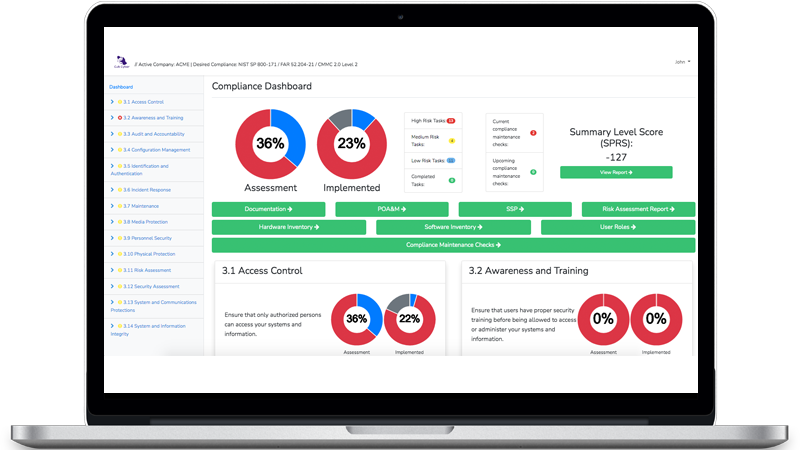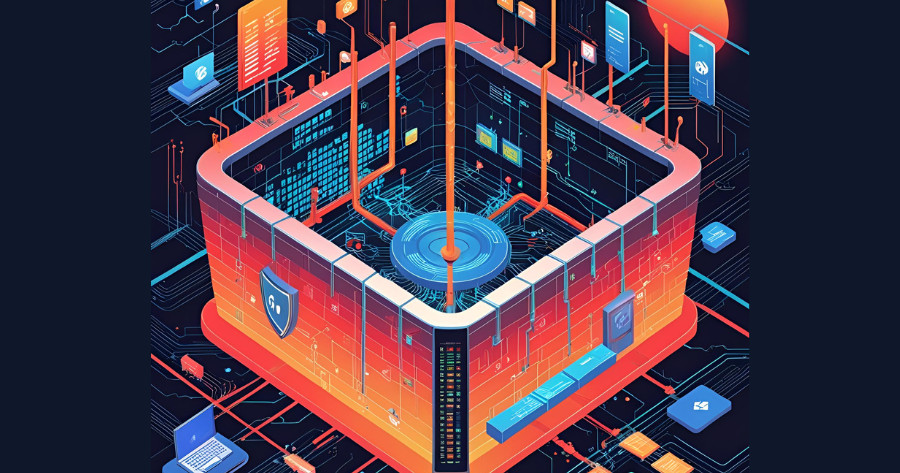
Book a Discovery Call
- How long does it take to become compliant?
- How much does it cost to become compliant?
- See a demo of our solution

The control reads: Verify and control/limit connections to and use of external information systems.
External systems are systems or devices that your organization does not directly control. This means you can't enforce security settings or ensure they meet your cybersecurity standards. Examples of external systems include: Personal laptops, phones, or tablets used by employees or contractors. Privately owned devices located in commercial spaces or public areas. Cloud services like Dropbox, Google Drive, or third-party apps not managed by your company.
This requirement also covers the use of external systems to store, process, or send Federal Contract Information (FCI). This includes using services such as: Infrastructure as a Service (IaaS), Platform as a Service (PaaS), and Software as a Service (SaaS).
Your business must set clear rules for when and how external systems can be used. These rules should be documented in your security policies and explain:
Sometimes, outside individuals like contractors or partners may need to access your systems using their own devices. In those cases, your organization must ensure those external systems are secure enough not to pose a risk. This can be verified through: security audits, attestation reports, and independent third-party assessments
It’s important to note that “external” doesn’t always mean outside your company. For example, if one part of your organization handles FCI and another doesn’t, then from a security perspective, the system that doesn’t handle FCI might be considered “external” to the one that does. You should apply similar caution when managing internal access between systems with different security needs.
It’s important to note that “external” doesn’t always mean outside your company. For example, if one part of your organization handles FCI and another doesn’t, then from a security perspective, the system that doesn’t handle FCI might be considered “external” to the one that does. You should apply similar caution when managing internal access between systems with different security needs.
Your company has been awarded a new contract that involves handling Federal Contract Information (FCI). You remind your team that, in accordance with company policy, they must use only company-issued laptops—not personal laptops, tablets, or other devices—when working remotely on this contract. Additionally, you emphasize the importance of using the approved cloud environment designated for FCI to store and process contract-related data, and not other collaborative platforms that may be used for non-FCI projects.
Quick & Simple
Whether you need to meet and maintain your compliance requirements, help your clients meet them, or verify supplier compliance we have the expertise and solution for you